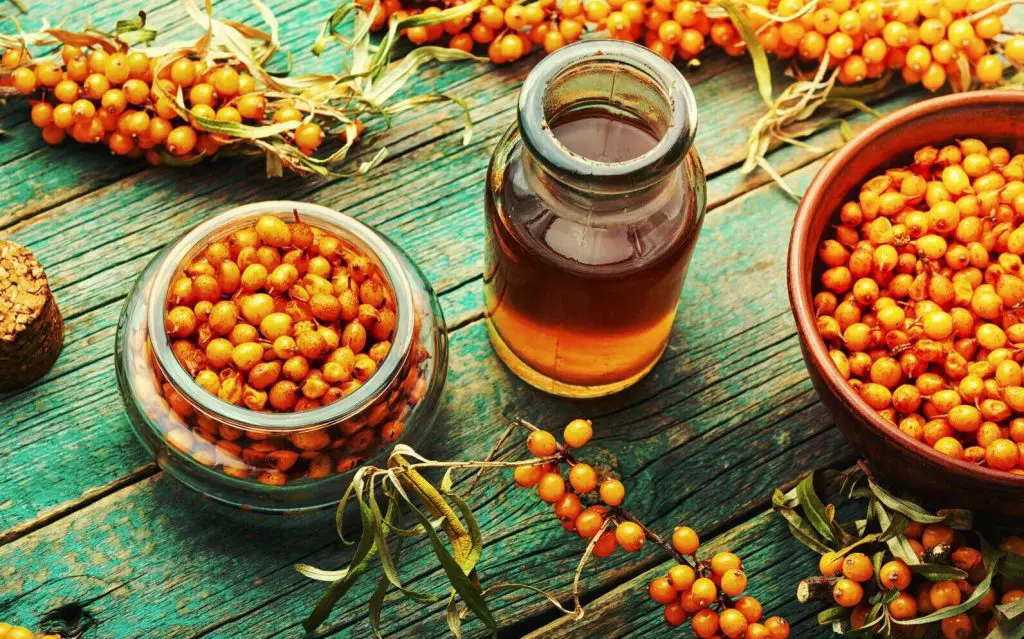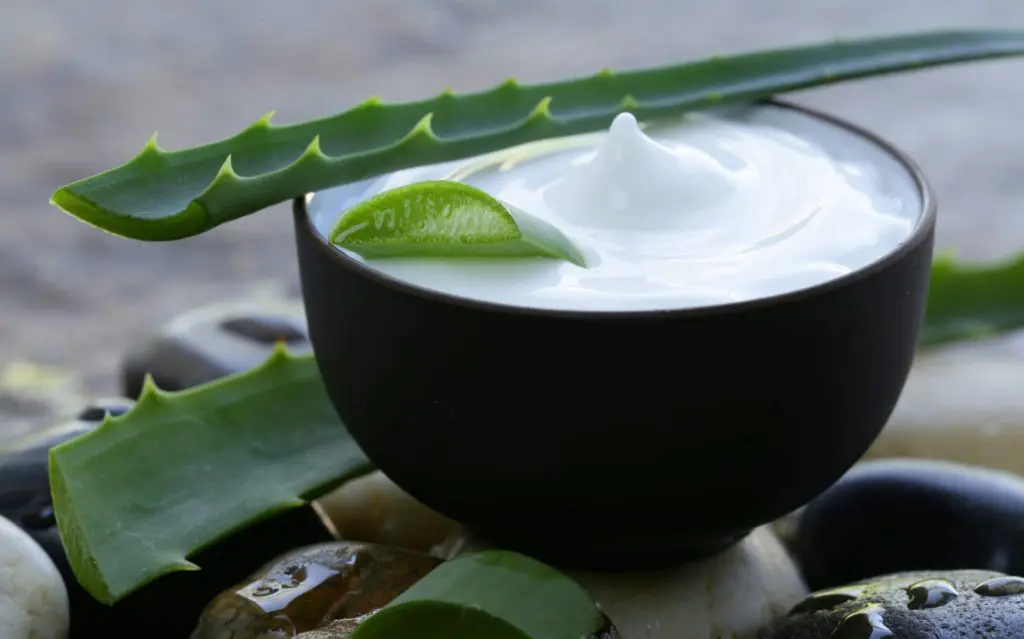Antioxidants play a vital role in cosmetics and natural skincare is no exception, but there is often a misunderstanding about what antioxidants are, how they work and why they are used in cosmetic products.
In this article, we explain what antioxidants are, where they come from, their benefits, and how and when to use one.
We’ll also explain why they are an essential ingredient for natural and organic skincare products and we’ll also give you our top three antioxidant ingredients to use!
What are antioxidants and where do they come from?
Antioxidants are substances that inhibit or slow down the oxidation processes. Free radicals can cause oxidation damage in our skin and in cosmetic products. Antioxidants work as free-radical scavengers, ‘catching’ and neutralizing damaging free radicals and thus preventing oxidation.
To simplify, they ‘sacrifice themselves’ to protect other molecules in the skin or in the product.
They neutralize the free radicals and prevent them from causing harm to carrier oils or to our skin cells.
When oils are exposed to air, oxidation starts to occur causing the oils to go rancid. When oils oxidize, the molecules that make them transform into completely different compounds that can be irritating and harmful when applied to the skin.
Antioxidants are naturally present in microorganisms, plants and animals, for example: Vitamin C, Vitamin E, tannins, carotenes and coenzyme Q10.
Antioxidants can also be produced synthetically.
Why are antioxidants used? The benefits to your skin and natural skincare products
The role of antioxidants are twofold: they provide benefits to the skin and they help delay the onset of the oxidation process, thus lengthening the shelf-life of oils and cosmetic products. Antioxidants play a very important role in skincare and our overall health.
Our skin prevents many organisms and chemicals from entering our body. It protects us from pollution and harmful environmental factors, especially UV radiation from the sun.
These factors cause free radicals to form in the skin.
While our skin has a complex network of antioxidants that fight the negative effects of free radicals, the levels of naturally present antioxidants can deplete as we age, due to poor diet, exposure to stress, etc.
Antioxidants included in skincare products help to restore healthy levels of various protective molecules in our skin and thus protect us from free radicals and other types of oxidative stress.
Oxidative stress is one of the main causes of skin aging, mainly due to environmental factors (notably exposure to sunlight). With sufficient antioxidants in our diet and in our skincare, we can help to slow down the skin aging process and minimize sun damage.
This is why most of the antioxidants used in skincare are usually described as anti-aging ingredients.
They help to strengthen the skin’s own mechanisms of fighting against some signs of aging – loss of elasticity, formation of fine lines and wrinkles. The signs of aging can differ depending on skin color, with fine lines and wrinkles usually experienced sooner on lighter skin, while darker skin tends to experience hyperpigmentation as one of the early signs of aging. However, eventually all skin will develop lines and wrinkles!
We wrote an article called Understanding How Your Skin Works that you also might like to read.

What products are antioxidants used in?
Antioxidants are an important ingredient in any product that contains oils or other ingredients that are prone to oxidation. Using antioxidants in balms, salves, lotions and creams will improve the stability of the oils in the product, and thus prolong the product’s shelf-life.
Antioxidants with more pronounced skin benefits are used in high-performance skincare products, eg anti-aging serums and moisturizers. They are usually used in combination with different antioxidants as they work in synergy, protecting each other and often restoring each other’s antioxidant capabilities.
We talk more about high-performance ingredients, including multiple antioxidants, in our Advanced Certificate in High-Performance Serum Formulation.
Are antioxidants natural?
There are many natural antioxidants available, for example natural tocopherols or rosemary antioxidant, and there are also synthetic antioxidants such as BHT and BHA. However, synthetic antioxidants are not approved for use in certified natural cosmetics.
Some antioxidants that are commonly used in anti-aging products can be made synthetically as a nature-identical molecule. It’s best to check with the supplier to make sure your chosen antioxidant is naturally derived.
If you’d like to explore more about what natural means, check out our article, What is Natural Skincare?
Two popular examples of effective antioxidants used in natural skincare
Two commonly used antioxidants that slow down the process of oxidation and therefore lengthen the shelf-life of cosmetics are Vitamin E (INCI: Tocopherol/Mixed Tocopherols) and rosemary CO2 extract (INCI: Rosmarinus Officinalis Extract).
Vitamin E as an antioxidant:
Some Vitamin E solutions are naturally derived and some are synthetically derived. However, all of the solutions are suitable for use in natural cosmetics (you just need to keep in mind that you will need to adjust the amount of Vitamin E you use in a product depending on how concentrated your mixture is).
The optimal levels of antioxidant to be added to the product also depends on product type and oils used, but your supplier should be able to provide the information you need.

Rosemary extract as an antioxidant:
Rosemary antioxidant is a special type of rosemary CO2 extract which has excellent antioxidant properties and is 100% oil soluble and natural.
Keep in mind that rosemary extract has a strong scent which may be noticeable in the final product if no other aromatic ingredients are added. Also, rosemary essential oil is not a substitute for rosemary extract, as it does not contain the compounds needed for antioxidant activity.
When buying rosemary extract, look for the one that has antioxidant activity noted in the name or in the description. This means that the extraction method is optimized for best antioxidant activity.

Are antioxidants and preservatives the same thing?
Antioxidants are not preservatives. The role of antioxidants and preservatives are often confused. It’s important to understand that they are different ingredients with different functions and one is not a replacement for the other.
Products that contain water need a broad-spectrum preservative to kill microorganisms and waterborne bacteria, and prevent the growth of bacteria, mold and yeast.
An antioxidant will not do this.
To understand more about the difference between antioxidants and preservatives, read our article, What is the Difference Between a Preservative and an Antioxidant?
How can you learn the essential ingredient information you need to make amazing natural skincare products?
The foundation of every great product is the idea created by the innovator and the ingredient selection that brings that idea to reality.
To become an effective natural skincare products formulator you’ll need to know about and understand a wide range of ingredients, including antioxidants, their role in natural skincare products, the benefits they offer and the products in which they are used.
Additionally, it is important to know how to use them properly and what the recommended usage levels are for each ingredient.
In our Certificate in Making Natural Skincare Products we have over 120 recipes and tips on how to vary them to suit your needs and preferences. This is a fantastic introduction to making your own natural skincare products and we teach the basics that every natural beauty enthusiast needs to know about. Created by industry professionals with a passion for natural and organic beauty, the course is the foundation you need to make a complete range of natural skincare products for yourself, family and friends.
In our Diploma in Natural Skincare Formulation students learn to become independent creators of their own handmade natural skincare products. They don’t need to follow other people’s recipes (unless they want to) because they have the essential theory, knowledge and practical skills to formulate professional quality products from scratch. This makes the job of cosmetic product testing much more simple and straightforward and it is also the basis of launching a successful brand – the practice, art and science of skincare formulation.
Of course, you don’t need to want to launch your own brand to join this course. It is designed to help you learn the proper way to make your own natural skincare products – we ensure you keep the DIY essence, vision and values, but we match it with professional methods and industry standards… We call this DIY Skincare Done Professionally.
If you are just starting out, either course would be suitable. The Certificate helps you to learn the practical skill of making products and the Diploma course does that as well as show you how to create products by doing it from scratch without needing to follow recipes.
Want to know more about natural emulsifiers and preservatives?
Discover the most natural emulsifiers and preservatives for your skincare products by downloading our free guide!

Loved learning about antioxidants in natural skincare? Make sure to remember by pinning this article!

Further reading:
If you wish to read more, two interesting studies are:
Evans, J. C., Kodali, D.R & Addis, P.B. (2002). Optimal tocopherol concentrations to inhibit soybean oil oxidation. Journal of the American Oil Chemists’ Society, 79(1), 47-51.
Huang, S. W., Frankel, E. N. & German, J. B. (1994). Antioxidant activity of. alpha- and gamma-tocopherols in bulk oils and in oil-in-water emulsions. Journal of Agricultural and Food Chemistry, 42(10), 2108-2114.



